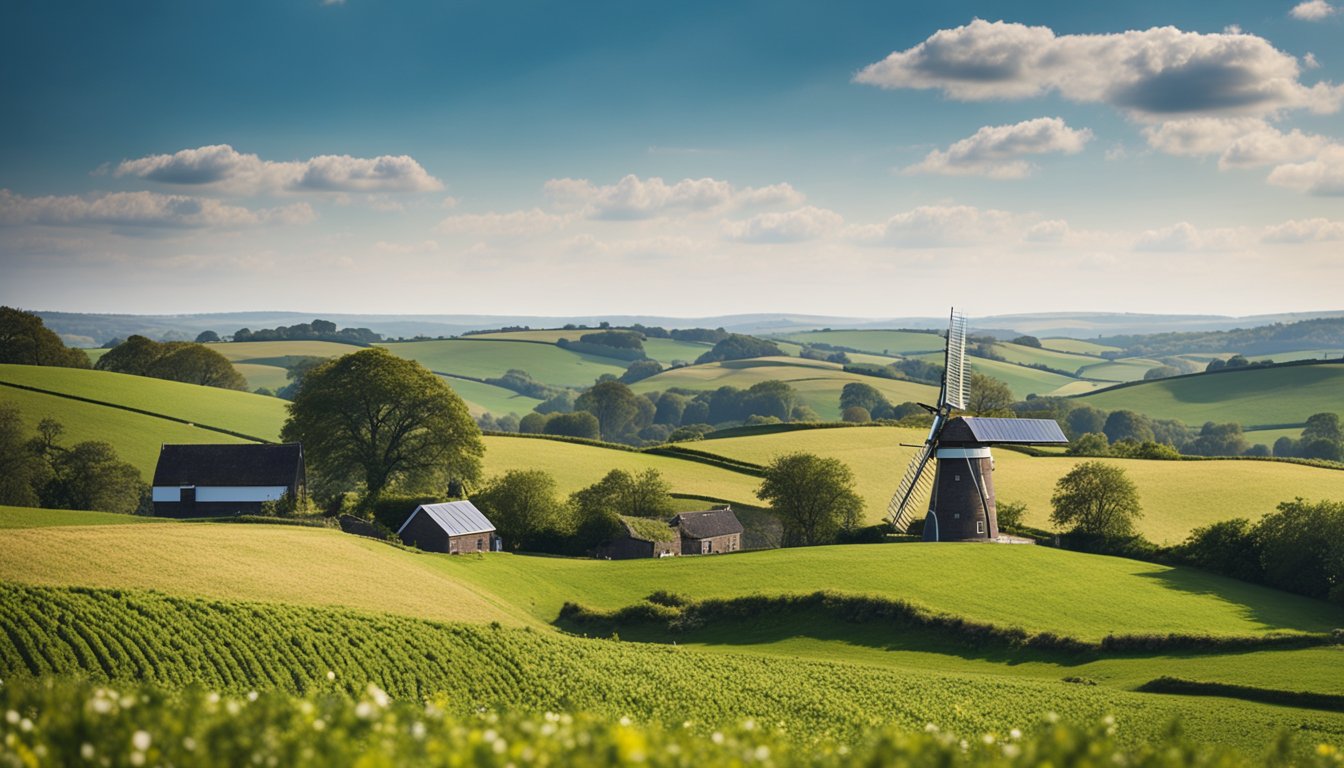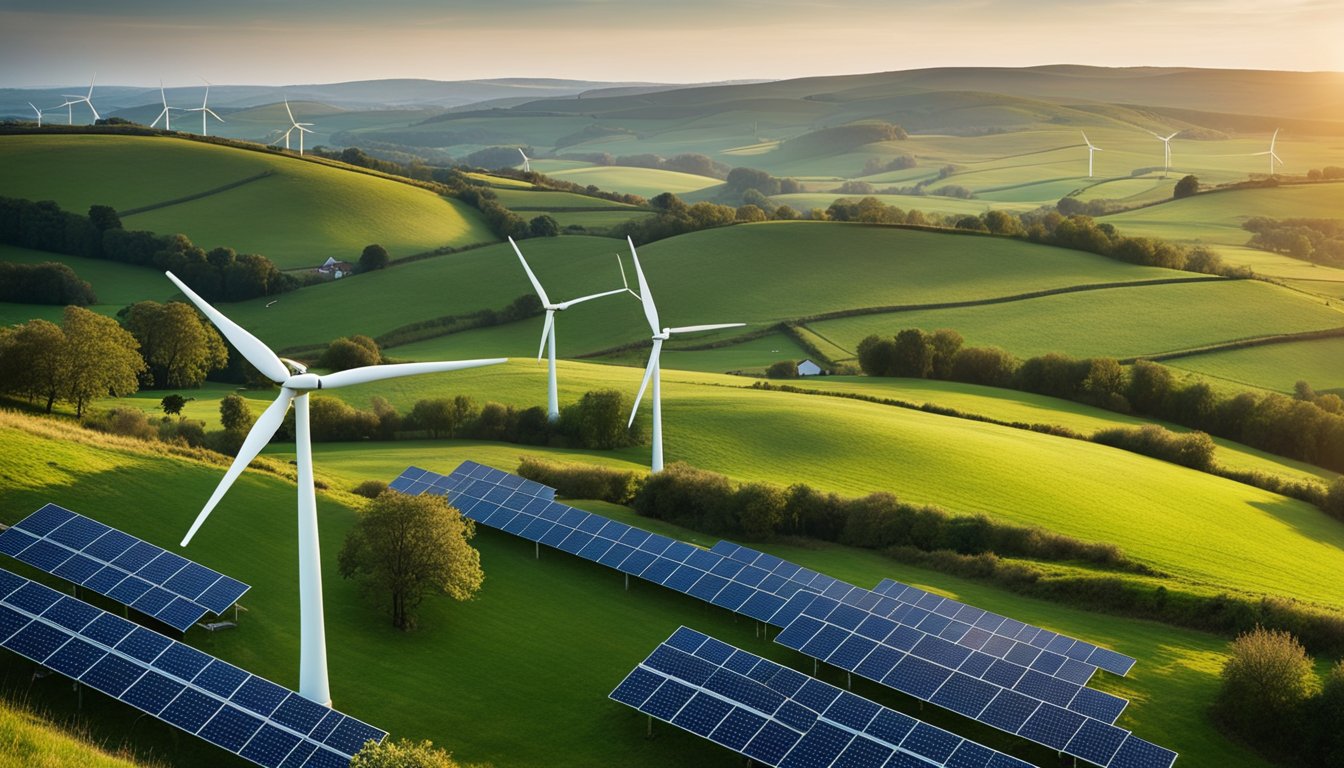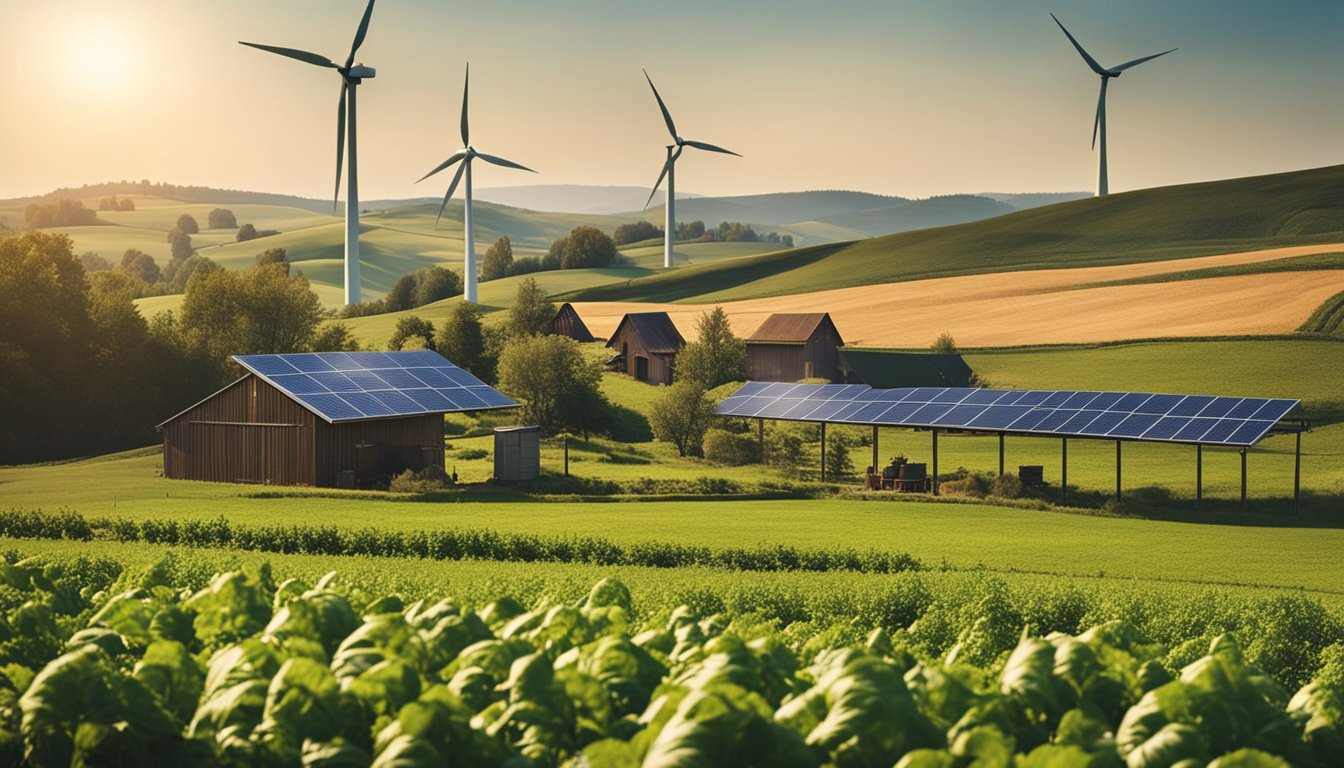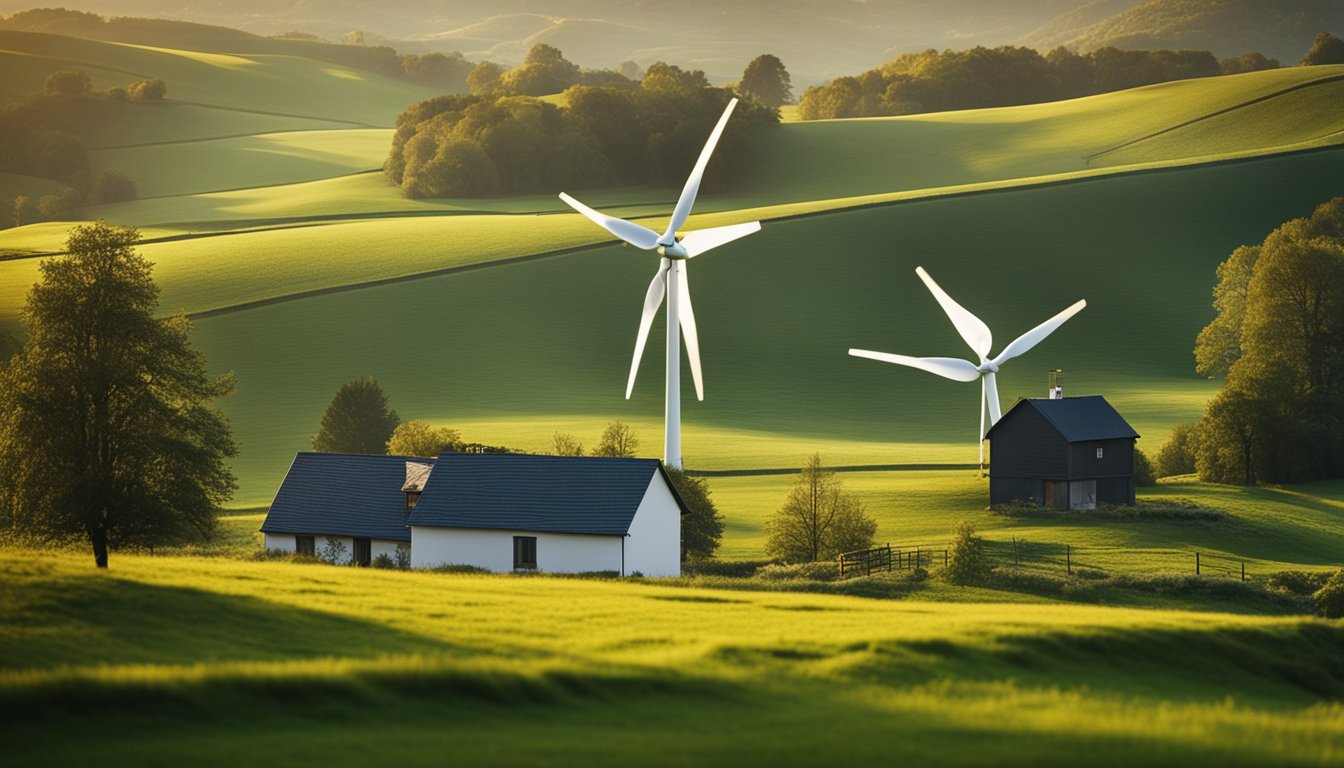Late updated: 10 Oct 2024 13:10
Written by: Oliver Bennett
Green Energy Tips for UK Countryside Living: Sustainable Solutions for Rural Homes
Sustainable living in the UK countryside offers unique opportunities to harness the benefits of green energy. Our vast rural landscapes allow us to explore renewable energy solutions that can significantly reduce our carbon emissions. Embracing green energy in the countryside not only benefits the environment but can also lead to substantial savings on energy bills.

Wind turbines, solar panels, and biomass heating systems are powerful tools for those looking to implement sustainable practices. The countryside's open spaces and natural resources make it ideal for such technologies, providing both energy independence and environmental stewardship. By using these green technologies, we can maintain our beautiful rural surroundings while ensuring a healthier future.
To make the transition smoother, Government initiatives and grants are available, making it more accessible for countryside dwellers to adopt green energy solutions. The combination of natural resources and financial incentives makes it a prime time for us to invest in sustainable energy.
Key Takeaways
- Countryside offers unique benefits for green energy.
- Solar, wind, and biomass are effective rural options.
- Government incentives support sustainable practices.
Understanding Green Energy in the UK Countryside

Incorporating green energy into countryside living fosters sustainability and combats climate change. Through renewable sources and supporting legislation, there are multiple ways to achieve net zero emissions.
The Basics of Renewable Energy
Renewable energy transforms how we power our homes and lifestyles. In the UK countryside, the focus is often on solar panels and wind turbines. These technologies harness natural resources, offering a sustainable alternative to fossil fuels.
Solar panels can be installed on roofs or as standalone units to generate electricity. Meanwhile, wind turbines, commonly seen in rural areas, convert wind into power. Bioenergy is another option, using organic materials such as agricultural waste to produce heat and electricity.
Benefits:
- Sustainability: Reduces carbon footprint
- Cost Savings: Low operational costs after initial setup
Challenges:
Initial setup costs and planning permissions can be barriers.
Legislation and Climate Targets
Government policies play a pivotal role in promoting renewable energy. The UK's Net Zero Strategy intends to eliminate carbon emissions by 2050. Policies like the Contracts for Difference scheme support this transition by providing financial incentives for green projects.
These legislative measures encourage rural communities to embrace renewable solutions. Achieving net zero emissions relies heavily on this collaborative effort between citizens and policymakers.
Current Targets:
- Net Zero by 2050
- Interim targets: Gradual reductions in emissions across various sectors
Understanding and complying with these regulations is vital for residents aiming to contribute positively to the environment while securing energy independence.
Implementing Sustainable Practices in Rural Areas

Implementing sustainable practices in rural areas can significantly reduce carbon emissions and improve energy efficiency. Key strategies include improving home insulation, adopting alternative heating solutions such as heat pumps, and enhancing recycling efforts to minimise waste.
Improving Home Energy Efficiency
We can increase energy savings by focusing on effective insulation. Using cavity wall insulation, coupled with double or triple glazing, ensures homes retain heat better. Draught-proofing doors and windows further reduces energy loss.
Switching to LED bulbs and investing in energy-efficient appliances can lower energy usage. The Energy Saving Trust provides valuable resources highlighting energy-efficient practices we can adopt. Adopting these methods helps cut energy bills and lowers CO2 emissions, contributing to a sustainable life in the countryside.
Alternative Heating and Power Solutions
In considering alternative heating and power solutions, solar panels represent a viable method for harnessing renewable energy. Wind turbines are also feasible for areas with consistent winds. Heat pumps, including ground-source and air-source varieties, offer efficient heating options, reducing reliance on fossil fuels.
Hydrogen heating and district heating systems are emerging solutions, offering potential for reduced environmental impact. Notably, secondary glazing offers additional insulation, further conserving energy. By embracing these technologies, rural communities can significantly decrease carbon footprints and improve energy self-sufficiency.
Waste Reduction and Local Recycling
Local recycling efforts play a critical role in waste reduction. Proper sorting and recycling of materials reduce landfill contributions. Encouraging composting of food waste can transform organic waste into valuable fertiliser, supporting local agriculture.
Participating in community recycling programmes helps save resources. Educating residents about the benefits of recycling and waste reduction increases participation rates. By committing to waste reduction, we not only decrease environmental impact but also enhance the quality of rural life, aligning with green living goals.
Frequently Asked Questions

Exploring green energy solutions for rural living in the UK involves understanding renewable options, reducing our carbon footprint, and maintaining local biodiversity. Several steps can enhance sustainability efforts, including eco-friendly insulation, water conservation, and greener transportation.
What are the best ways to implement renewable energy sources in rural UK homes?
In rural areas, we can benefit significantly from solar panels, wind turbines, and biomass energy. Solar panels can be installed on rooftops to harness sunlight. Small wind turbines can generate power in open fields. Biomass systems, using organic materials, provide renewable heating solutions, complementing other energy sources effectively.
How can UK countryside residents reduce their carbon footprint through changes in daily life?
Minimising meat consumption, opting for local produce, and reducing waste are impactful steps. Engaging in recycling and composting can further reduce emissions. Energy-efficient appliances and LED bulbs lower electricity consumption. Embracing these habits helps us lessen our environmental impact over time.
In what ways can countryside dwellers in the UK support local biodiversity while practising green living?
Planting native flora, creating wildlife-friendly gardens, and avoiding chemical pesticides are key. These actions attract and support local wildlife, such as bees and butterflies. Maintaining natural hedgerows and meadows enhances habitats. By preserving these ecosystems, we contribute positively to biodiversity.
What are the most effective eco-friendly home insulation options available for countryside properties in the UK?
Straw-bale and wool insulation are excellent choices for rural homes. Straw-bale offers good thermal resistance, while wool is a natural, sustainable insulation. These options help reduce heat loss, keeping our homes warm in winter and cool in summer. Effective insulation is crucial for energy efficiency.
How can residents of the UK's rural areas minimise water waste and promote sustainable water usage?
Using water butts to collect rainwater and watering gardens with a can instead of a hose are practical measures. Installing low-flow taps and toilets reduces water usage indoors. These steps conserve water resources, crucial for sustainability in rural communities.
Which eco-friendly transport alternatives are suitable for those living in the British countryside?
Electric bikes and shared transport schemes offer sustainable travel options. E-bikes provide an efficient way to navigate rural routes. Car-sharing reduces the number of vehicles needed, decreasing emissions. Encouraging public transport investment enhances connectivity and reduces reliance on personal cars for longer journeys.
